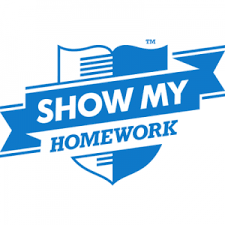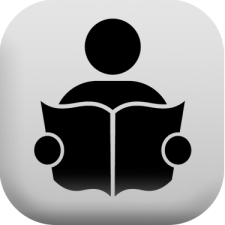Physical Education
Curriculum Intent
All learners are exposed to a culture within the PE Department, which aims to inspire an active generation who enjoy PE, encourage their peers and strive to achieve their ultimate personal best. We provide a safe and supportive environment for all learners to flourish in various physical activities, and to support their physical, emotional, social and moral development, through enjoyment and a sense of achievement. We encourage all learners to adopt a positive mind-set and a self-belief that they can achieve anything through determination and resilience, and encourage moral integrity through the understanding of physical differences and ability levels.
Lessons provide all learners with the opportunity to engage in inclusive, active and structured lessons, which focus on sporting skills and a development of progression through the schemes of work. High level of fair play are promoted and all learners are encouraged to show honesty and integrity through observing the rules and regulations. All learners are provided with opportunities to work closely with others in a variety of situations to develop co-operation and teamwork skills. They are encouraged to be motivated and engaged and to be equipped with the knowledge, enthusiasm and confidence, to encourage lifelong participation in sport.
The courses taught within each Key Stage are outlined below. If you have any further queries, please email pe@southwolds.uk
Please note that this email address is not monitored daily but we will endeavour to reply within 3 working days.
KS3 PE - Year 7
Year 7 PE Curriculum
The KS3 PE curriculum is intended to fulfil 2 main aims:
- Prepare students for studying examination courses in PE at KS4 and KS5
- Equip students with the knowledge, enthusiasm and confidence in sport to encourage lifelong participation
Year 7 will focus on developing fundamental motor skills into sports specific skills, basic tactics, strategies and compositional ideas.
Games
Students in year 7 focus on how to use basic principles of attack and defence to plan strategies and tactics. Pupils will work on improving the quality of their skills with the intention of outwitting opposition. In team games, there will be an emphasis on attacking skills.
Games Activities include: Netball (Girls), Football, Rugby (Boys), Handball, Hockey, Badminton, Cricket, Rounders
Gymnastics
Students in year 7 will demonstrate skills and agilities individually and in combination. They will focus on developing stability when holding their own body position and when supporting a partner. Students incorporate greater control, precision and aesthetics into sequences and show more advanced skills and creativity throughout the key stage.
Basic gymnastic movements on floor and apparatus to include rolls, balances, locomotion, synchronisation, canon and linking movements. Students will be encouraged to develop their individuals skills and compositional ideas.
Athletics
In all athletic activity, students will engage in performing and improving their skills and personal bests in relation to speed, height and distances.
Students in year 7 will be taught to accurately replicate running, jumping and throwing skills and learn specific techniques for events in order to improve performances. They will carry out investigations into aspects of technique and use the information to become more technically proficient. Students will focus on basic technique such as grip, stance, angles of release / take off, sprinting styles and pacing.
Dance
Students in year 7 will focus on creating dance and the use of stimuli. They will explore a range of dance movements using steps, gestures, formations, body shapes, contact work, and contrasts in dynamic and rhythmic patterning. Students will demonstrate creativity by incorporating control, rhythm, timing and aesthetics into sequences.
Health Related Exercise
Students in year 7 will learn and accurately replicate specific techniques for a variety of fitness-based activities. They will carry out investigations into the bodies’ ability to exercise and the reasoning behind such principles. Students will gain an understanding of warmups and cool downs, and the importance of exercises to their health and wellbeing. They will reflect on the benefits that different fitness events give to an individual and implications for future life.
KS3 PE - Year 8
The KS3 PE curriculum is intended to fulfil 2 main aims:
- Prepare students for studying examination courses in PE at KS4 and KS5
- Equip students with the knowledge, enthusiasm and confidence in sport to encourage lifelong participation
Year 8 will focus on refining sports specific skills and developing a greater understanding of tactics, strategies and compositional ideas.
Games
Students in year 8 will focus on developing team attacking and defending strategies and techniques. Students will select and apply their skills so that they can carry out tactics with intent to outwit the opposition. In team games, there will be an emphasis on defending skills.
Games Activities include: Netball (Girls), Football, Rugby (Boys), Basketball, Hockey, Badminton, Table Tennis, Cricket, Rounders
Gymnastics
Students will demonstrate skills and agilities individually and in combination. They will focus on developing stability when holding their own body position and when supporting a partner. Students incorporate greater control, precision and aesthetics into sequences and show more advanced skills and creativity throughout the key stage.
Student in year 8 will recap the main topics covered in year 7 encouraging more refined technique and advanced skills. This will be followed by the introduction of flight and the use of springboards and vaulting boxes.
Athletics
In all athletic activity, students will engage in performing and improving their skills and personal bests in relation to speed, height and distances.
Students in year 8 begin to use their knowledge of athletics events, strategies and techniques to develop and enhance replication and performance. Students develop their understanding of fitness and its relationship to performance. Students will focus on more advanced techniques such, refining run ups and sprint starts.
Dance
Students in year 8 will focus on performing dance and working in groups. They will explore a range of dance and cheerleading movements using more advanced steps, gestures, group formations, body shapes, contact work, and greater contrasts in dynamic and rhythmic patterning. Students will demonstrate creativity by incorporating greater control, rhythm, timing and aesthetics into group sequences.
Health Related Exercise
Students in year 8 will continue to learn and accurately replicate specific techniques for a variety of fitness-based activities. They will carry out investigations into the bodies’ ability to exercise and will gain an understanding of aerobic an anaerobic exercise, they muscular system and the short term and long term effects of exercise on the body.
KS3 PE - Year 9
Year 9 PE Curriculum
The KS3 PE curriculum is intended to fulfil 2 main aims:
- Prepare students for studying examination courses in PE at KS4 and KS5
- Equip students with the knowledge, enthusiasm and confidence in sport to encourage lifelong participation
Year 9 will focus on developing more advance skills, tactics, strategies and compositional ideas and encourage them to on plan, prepare for and compete in a range of activities, organised by themselves and others.
Games
Students in year 9 will focus on developing, implementing and refining team and individual game plans with the goal of outwitting an opponent. They will develop and implement more advanced attacking and defending strategies and techniques with greater speed, power and accuracy.
Games Activities include: Netball (Girls), Football, Rugby (Boys), Basketball, Hockey, Badminton, Volleyball, Table Tennis, Tennis, Cricket, Rounders
Gymnastics
Students will demonstrate skills and agilities individually and in combination. They will focus on developing stability when holding their own body position and when supporting a partner. Students incorporate greater control, precision and aesthetics into sequences and show more advanced skills and creativity throughout the key stage.
Students in year 9 will focus on developing move advance skills and compositional work, introducing trampettes and springboards as well as refining floor work and larger apparatus.
Athletics
In all athletic activity, students will engage in performing and improving their skills and personal bests in relation to speed, height and distances.
Students in year 9 will further enhance replication and performance across all disciplines. Students will gain a further understanding of fitness and its relationship to performance. Students will focus on planning, preparing for and competing in a range of athletic competitions organised by themselves and others.
Dance
Students in year 9 will explore a range of dance movements and styles using specific steps, gestures, formations, for each style. Students will demonstrate creativity by incorporating more advanced control, rhythm, timing and aesthetics into sequences.
Health Related Exercise
Students in year 9 will continue to learn and accurately replicate specific techniques for a variety of fitness-based activities. They will carry out investigations into the bodies’ ability to exercise and will gain an understanding of how specific exercises can benefit specific sports as well as improve general health and fitness.
KS4 Core PE
All Students in KS4 take part in 2 hours of Core PE per fortnight.
KS4 Core PE lessons are designed to give students more opportunities to experience a wider range of practical skills and to extend the ones they have already learnt. Students are encouraged to take on more responsibility for the activities they take part in. The aim is to enable them to develop their own personal interests, improve their standard of performance or simply gain new experiences.
Students are able to choose the activities they take part in during lesson. Every effort is always made to accommodate the choices of all the students, although at times it is not always possible due to staffing, facilities, group sizes, etc.
The types of activities on offer include: football, rugby, hockey, netball, badminton, basketball, table tennis, aerobics, weight training, dance, spin bikes, indoor rowing, trampolining, athletics, tennis, rounders and cricket.
Should they wish, in year 10 Core PE lessons, students are able to participate in the Sports Leaders Award. This is a qualification designed to develop leadership skills which can be applied to a variety of sporting activities. It is a practical qualification in which students are asked to demonstrate knowledge and understanding through physical competence rather than written work.
Students are taught and asked to demonstrate their competency in the following areas:
- Organisational skills,
- Communication skills,
- Health and Fitness,
- Fair Play in Sport,
- The role of the Official,
- Opportunities in Sport and Recreation
PE kit is compulsory in all KS4 PE lessons as is the removal of all jewellery for health and safety reasons. A note is required if students are ill or injured and unable to take part in the practical activities.
How to Help
It is recommended that children and adolescents should do 60 minutes or more of physical activity each day. Most of the 60 minutes should be either moderate or vigorous intensity aerobic physical activity, and should include vigorous-intensity physical activity at least 3 days a week.
Useful Links
The following website offer ideas and suggestions for getting physically active and improving physical and mental health and wellbeing:
KS4 PE
OCR GCSE Physical Education
This course will equip students with the knowledge, understanding, skills and values to develop and maintain their performance in physical activities, and enhance their understanding of the benefits of physical activity to health, fitness and well-being. Students will develop theoretical knowledge and understanding of the factors that underpin physical activity and sport and will be encouraged to use this knowledge to improve performance. They will develop an understanding of how an individual’s physiological and psychological state affects their performance in physical activity and sport
Theory Content (60% of total mark)
There are 2 exams at the end of year 11. Each exam lasts 1 hour and consists of a mixture of multiple choice, short answer and extended answer questions.
Paper 1 Content – Mainly taught in Year 10 (30% of total mark)
Students explore how parts of the human body function during physical activity and the physiological adaptations that can occur due to diet and training. They also develop skills in data analysis, and an understanding of the principles of training, why we train in different ways and how training plans can be made to optimise results.
There are two main topics:
- Applied anatomy and physiology
- Physical training
Paper 2 Content – Mainly taught in Year 11 (30% of total mark)
Students develop their knowledge of the social-cultural and psychological influences on levels of participation in sport, and also how sport impacts on society more broadly. This includes the individual benefits to health, fitness and well-being of participating in physical activity, as well as the influences of commercialisation, sponsorship and the media.
There are three main topics:
- Socio-cultural influences
- Sports psychology
- Health, fitness and well-being
Practical Activities (30% of total mark)
Students are assessed in performing three practical activities. In each practical performance, they must demonstrate effective performance, the use of tactics or techniques and the ability to observe the rules and conventions under applied conditions. Students will take part in a number of different practical activities over the 2 year course. The marks for the three highest activities will be used for the final practical mark. These three activities must include one in a team activity, one in an individual activity and the third in either.
Practical activities must be chosen from the following list:
Football, Badminton, Basketball, Cricket, Dance, Handball, Hockey, Lacrosse, Netball, Rowing, Sculling, Kayaking / Canoeing, Rugby, Squash, Table tennis, Tennis, Volleyball, Boxing, Athletics, Cycling (Track or Road), Diving, Golf, Gymnastics, Equestrian, Rock Climbing, Skiing, Snowboarding, Swimming, Trampolining.
Students will be expected to already have a good level of performance and knowledge of tactics and skills, rules and regulations.
During lessons students will work on individual skills practice and small sided games, as well as the full version of the game.
Analysis and evaluation of performance (10% of total mark)
Students are assessed in one performance analysis task. They are also required to demonstrate their ability to analyse and evaluate their own performance and produce an action plan for improvement. This is a written piece of coursework.
How to Help
It is recommended that students participate in at least one if not two of the practical sports listed above outside of school
Useful Links
- OCR Physical Education Text Book—John Honeybourne ‘PE Second Edition’ OCR GCSE (9-1)Hodder Education
- My Revision Notes OCR GCSE (9-1) PE 2nd Edition – Sarah Powell
- BBC Bitesize—Physical Education
- OCR Website—Physical Education for past papers
- Seneca learning
- Quizlet.com
- South Wolds Academy Public Drive for all theory material, including past papers, revision resources and theory PowerPoints
KS4 Sports Science
OCR Cambridge National Level 1/2 Award in Sport Science.
Students will study four units, each with a different focus.
These are the following:
- Reducing the risk of sports Injuries
- Applying the principles of Training
- Sports Nutrition
- Technology in Sport
Each unit is weighted at 25% of the overall qualification.
The ‘reducing the risk of sports injuries’ unit is assessed through a written examination whereas the remaining 3 units are assessed through coursework.
Below is a breakdown of the main topics covered throughout the course.
Unit R041 - Preventing Sports Injuries:
- LO1 – Understand different factors which influence the risk of injury
- L02 – Understand how appropriate warm up and cool down routines can help to prevent injury
- L03 – Know how to respond to injuries within a sporting context
- L04 – Know how to respond to common medical conditions
Unit R042 – Applying the principles of training:
- L01 – Know the principles of training in a sporting context
- L02 – Know how training methods target different fitness components
- L03 – Be able to conduct fitness tests
- L04 – Be able to develop fitness training programmes
Unit R045 – Sports Nutrition:
- L01 – Know about the nutrients needed for a healthy, balanced diet
- L02 – Understand the importance of nutrition in sport
- L03 – Know about the effects of a poor diet on sports performance and participation
- L04 – Be able to develop diet plans for performers
Unit R046 – Technology in Sport:
- L01 – Know how technology is used in sport
- L02 – Understand the positive effects of sports technology
- L03 – Understand the negative effects of sports technology
- L04 – Be able to evaluate the impact of technology in sport
How to Help
It is recommended that students participate in at least one or two sports in order for them to have a good understanding of how to apply their knowledge to a sporting context when completing their coursework.
Useful Links
- OCR Cambridge National Level 1/2 Sport Science textbook – Murray & Howitt – Hodder Education.
- OCR Cambridge National Level 1/2 Sport Science
KS5 PE
OCR A LEVEL Physical Education
This course will equip students with both a depth and breadth of knowledge, understanding and skills relating to scientific, socio-cultural and practical aspects of physical education. Students will develop theoretical knowledge and understanding of the factors that underpin physical activity and sport and use this knowledge to improve performance.
This course will prepare learners for the further study of PE or sports science courses as well as other related subject areas such as psychology, sociology and biology. Students will also develop the transferable skills that are in demand by further education, Higher Education and employers in all sectors of industry. The way the course is structured will help to create confident, independent thinkers and effective decision makers who can operate effectively as individuals or as part of a team.
The course covers the following:
Theory Content (70% of total mark)
There are 3 exams at the end of year 13. All 3 consists of a mixture of short answer and extended answer questions.
Paper 1 - Physiological Factors Affecting Performance
2 hour written paper worth 30% of total A level
Paper 1 content taught across the 2 years
- Applied anatomy and physiology
- Exercise physiology
- Biomechanics
Paper 2 - Psychological Factors Affecting Performance
1 hour written paper worth 20% of total A level
Paper 2 content taught across the 2 years
- Skill acquisition
- Sports psychology
Paper 3 - Socio-cultural Issues in Physical Activity and Sport
1 hour written paper worth 20% of total A level
Paper 3 content taught across the 2 years
- Sport and society
- Contemporary issues in physical activity and sport
Non Exam Assessment (NEA) - Performance in Physical Education
Worth 30% of total A level
- Performance or Coaching in one activity taken from the approved list below
- Evaluation and Analysis of Performance for Improvement (EAPI)
Approved Practical Activity List
Acrobatic gymnastics, Amateur boxing, Association football (Cannot be five-a-side) Athletics, Badminton, Basketball, Camogie, Canoeing, Cricket, Cycling (Track, road or BMX cycling - racing, not tricks) Dance, Diving, Equestrian, Figure skating, Futsal, Golf, Gaelic football, Gymnastics (Floor routines and apparatus only) Handball, Hockey (Must be field hockey) Hurling, Ice hockey, Inline roller hockey, Kayaking, Lacrosse, Netball, Rock climbing (Can be indoor or outdoor) Rowing, Rugby league, Rugby union (Can be assessed as seven or fifteen a side) Sailing (Royal Yachting Association recognised sailing boat classes only) Sculling, Skiing (Outdoor/indoor on snow) Snowboarding (Outdoor/indoor on snow) Squash, Swimming ( Not synchronised swimming, personal survival or lifesaving) Table Tennis, Tennis, Trampolining, Triathlon (Sprint only) Volleyball, Water polo, Windsurfing,
Specialist activity
- Blind cricket
- Boccia
- Goal ball
- Powerchair football
- Polybat
- Table cricket
- Wheelchair basketball
- Wheelchair rugby
How to Help
It is highly recommended that students participate in their chosen practical sport (listed above) outside of school.
Useful Links
- For A level Year 1: OCR Physical Education Book 1 —John Honeybourne and Sarah Powell For A level Year 2: OCR Physical Education Book 2 —John Honeybourne and Sarah Powell
- My Revision Notes OCR A Level PE – Keri Moorhouse
- OCR website for past papers and revision resources
- South Wolds Academy Public Drive for all theory material, including past papers, revision resources and theory PowerPoints







